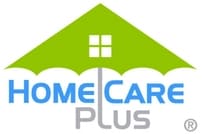With 1 in 8 women getting breast cancer in their lives, it’s not a matter of if you or a loved one will be affected but rather when. Most people are aware that breast cancer can run in families and that poor lifestyle choices like smoking, being overweight, and leading a sedentary lifestyle can put you at greater risk for breast and other types of cancers. What many people do not realize is the growing body of research showing the role environmental exposures to certain chemicals plays in raising breast cancer risk.
What sort of environmental exposures should you be on the lookout for? According to BreastCancerFund.org, there are a number of chemicals used in food packaging and personal care products that are known as endocrine disruptors, and it’s wise to be wary. Endocrine disruptors have been shown to mimic estrogen and other hormones in the body as well as interfere with breast cancer treatment. Avoid canned goods as the lining of the cans often contains Bisphenol A, or BPA. Phthalates, another type of endocrine disruptor, are used in personal care products containing synthetic fragrances, as well as many types of plastics. Avoid using plastic containers for food and refrain from heating food in plastic containers as the chemicals can leach into the food when heated. Parabens, preservatives used in personal care products and some foods, are also endocrine disruptors that have been linked to an increased cancer risk. Buying organic foods, especially those items on the Dirty Dozen, can help you avoid ingesting potential cancer-causing pesticides used to treat the plants. Eating organic meat, dairy and eggs helps you avoid the synthetic growth hormones many farmers use on their livestock.
For more information on how you can limit your environmental exposures to chemicals linked with cancer, read BreastCancerFund.org’s article Chemicals in Food. You can find a helpful pocket guide with tips on how you can limit your exposure at Coalition4Prevention.org.
- Making Strides of Charleston - October 22, 2021
- Watching out for Scammers - May 5, 2021
- Sleep and Tiredness - April 13, 2021


